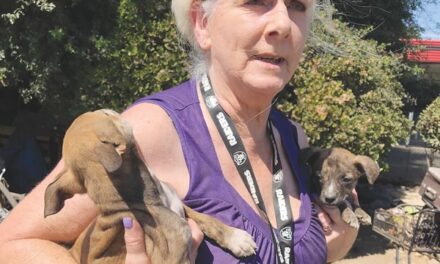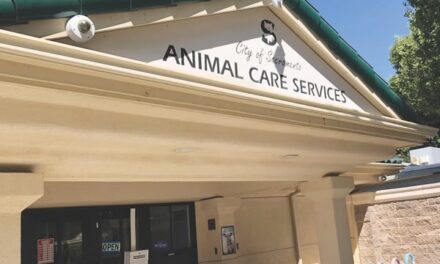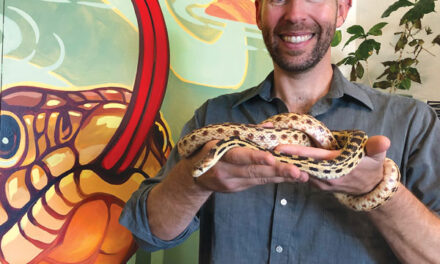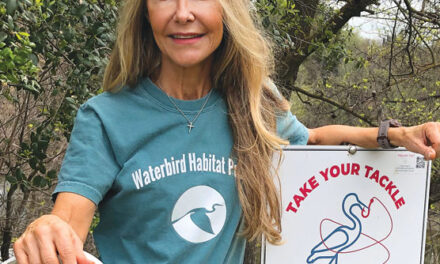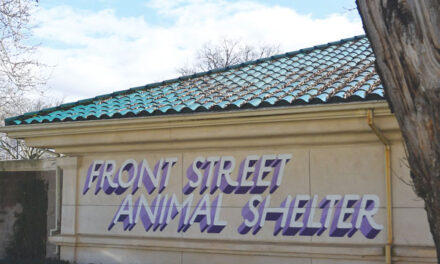I picked up the 10-pound mutt—a brown and black muddled mess of terrier, chihuahua and who knows what else—from Sacramento County’s Bradshaw Animal Shelter. My husband and I foster dogs for a local rescue group. This perky-eared pooch was our next project.
He was friendly, playful and affectionate. He loved to be held and rolled over for belly rubs. He got along famously with our other dogs and even enjoyed the company of cats. Sleeping was a favorite pastime, but walks on a sunny day were equally agreeable.
We named him Costello in honor of his gentle, forgiving demeanor—his ability for “peace, love and understanding” after all he had been through.

Yet, despite his admirable qualities, Costello had languished in the county shelter for weeks—passed over for adoption time and time again. His crime? He was 13 years old.
Senior dogs are adopted at half the rate of younger dogs and puppies, reports the American SPCA. As a foster parent for more than eight years, I can attest. Puppies, kittens and young adults “fly off the shelf.” Securing a home for animals in their twilight years can take months.
A pet’s “age isn’t his problem so much as a problem in the minds of prospective adopters conditioned to think that, because kittens and puppies are ‘cuter,’ they might make better pets or create stronger bonds,” says ASPCA President/CEO Matthew Bershadker. “Neither is necessarily true, and this prejudice can be deadly. Older animals are often the least likely to be adopted and the most likely to be euthanized.”
I’ve heard the typical explanations for wanting a younger canine or feline friend. Seniors are more prone to medical problems that can be costly. But any breed at any age can develop unexpected health conditions, from severe allergies to early diabetes. An older dog or cat without pre-existing medical concerns may be a better bet. Senior dogs at the Sacramento SPCA receive full diagnostic bloodwork and dental cleaning prior to adoption.
There’s the notion that it’s difficult to train or teach commands to elderly pets. I’ve been there. It’s easier to potty train an adult dog than a rambunctious, easily distracted puppy. And most older dogs already know to do their business outside. Adult pooches may understand basic commands and are perfectly capable of learning new tricks. They are smart and adaptive. Cats instinctively use the litter box—no training necessary.
Let’s not forget about coming home to pillow stuffing flung about the living room or the once-blooming garden now a mound of dirt and mud, courtesy of your “cute” puppy. Wooden table legs and new shoes become chew toys. Mature pets have outgrown these teething and destructive habits.
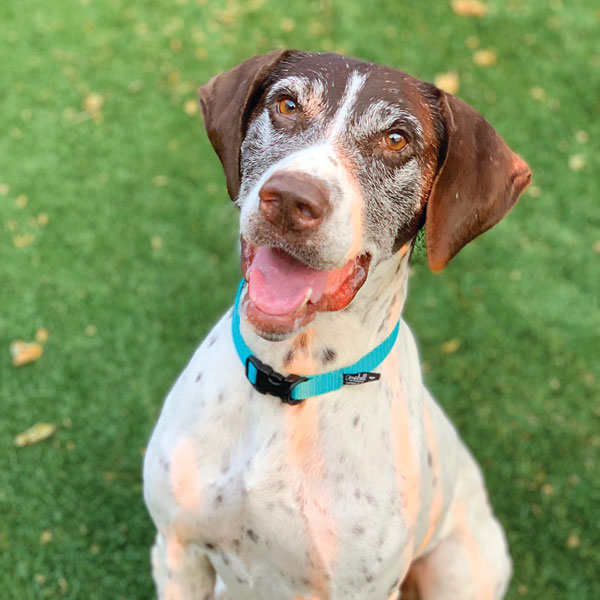
“If you’ve never adopted a senior dog, you don’t know what you’re missing,” says Celest Ingrid with the county’s Bradshaw Animal Shelter. “Most seniors are already house trained, and have learned desirable skills, such as walking nicely on a leash, and basic commands, and make fabulous companions.”
Older dogs don’t need constant attention and twice-daily walks. They are mellow, relaxed and easy to handle. They have developed their own personalities—traits that fit any lifestyle. Most have pasts that involved living in a home, maybe with other dogs or cats, making them more likely to settle into new environments faster.
“Adopting a senior pet and spending their golden years together is a truly special gift,” says Dawn Foster with the Sacramento SPCA. “It’s a time in their life where they’ve settled into a more comfortable version of themselves—some wanting to spend most of their time cuddling on the sofa with you and others still very active and adventurous, but without the intensity they had as a puppy or kitten.”
Many pet owners are concerned that an older Fido or Fluffy won’t be as likely to bond with family members as a youngster. My experience proves different. Senior dogs and cats, especially those who have lived a hard life, crave a kind voice and gentle hand.
They want to trust and be trusted. After being shut down and fearful in a chaotic shelter, an older pet will be an engaged family member in a safe, loving home. It might take 24 hours or 24 days. Patience and kindness (and a few good treats) are the only requirements.
Those looking to adopt may desire a specific breed. If you’re in the market for a chihuahua, pit bull or black cat, you’re in luck. Just contact your local shelter. Popular breeds, such as longhair dachshunds, French bulldogs and Siamese felines, are harder to find—and people turn to breeders for puppies and kittens. The ASPCA reports 25 percent of shelter dogs are purebreds. Plus, there’s a rescue group for every breed—just be patient and the right furry friend will come along.
But the No. 1 reason I hear for not wanting to adopt a senior is that the animal does not have a long life ahead. Many people have had to say goodbye to a beloved pet, often after an extended and gut-wrenching illness. They tell me, “I just don’t want to go through that again so soon.”
Yes, elderly pets will not live as long as we hope. But that’s more of an issue for humans than for animals. It’s our own selfishness. A senior pet’s need for a safe place to live out his or her life is just as strong as yours or mine. They still have much love to give.
“He is just wonderful,” Costello’s new mom tells me. “Wagging his tail and interacting with us. We love him so much. Thank you for bringing him into our life.”
Cathryn Rakich can be reached at crakich@surewest.net. Follow us on Facebook, Twitter and Instagram: @insidesacramento.




